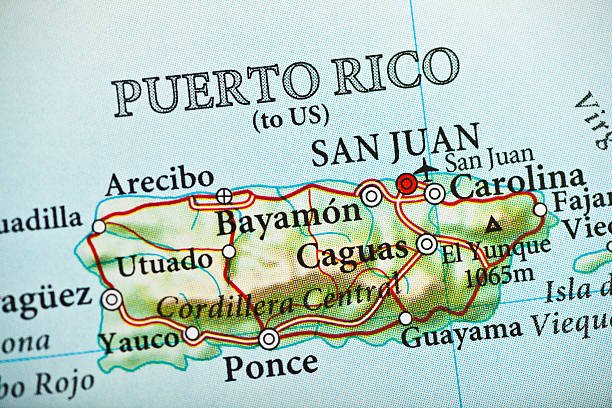Benefits Of Portugal’s Golden Visa For Tax Purposes.
Uncover out why acquiring a Golden Visa may be beneficial for your taxes, travel possibilities, and other areas of your life by reading the information provided here.
The Portuguese real estate market has been experiencing a lot of uncertainty (read: fear) as a result of the widely contested prospective changes to Portugal’s Golden Visa program.
Considering the wake of recent events, we felt it was important to provide both present and potential investors with an indication of what to anticipate if and when the proposed modifications to Portugal’s Golden Visa are put into effect.
The History Behind Portugal’s Golden Visa
The Golden Visa program in Portugal was established in 2012, when the nation was in the midst of its most severe economic downturn. It has since become perhaps the most well-known and profitable residence by investment program in all of Europe.
In an attempt to entice financial investment from overseas purchasers of real estate and other types of investors, the government of Portugal created a scheme that grants permanent residence in exchange for an initial investment.
It was hoped that the real estate market in Portugal, as well as the economy overall, would benefit significantly from these investments.
Since it was first introduced about ten years ago, the Golden Visa program has been an incredible success. More than 7,500 non-Europeans would be awarded residence by the program’s conclusion in 2019, and it would have produced €4.6 billion EUR ($5.2 billion USD as of March 20, 2019).
As a result of the Golden Visa program’s success in luring a consistent flow of investment, particularly into the real estate sector, Portugal’s property industry has been able to see significant expansion.
The remarkable improvement in Portugal’s economy may be attributed to a number of factors, including the explosion in the number of tourists visiting the country and the unprecedented increase in foreign direct investment.
An Outline of the Golden Visa Program in Portugal, Along with Its Benefits
The Portuguese Golden Visa is also known as the Autorizaco de Residência para Atividade de Investimento (ARI) or the Golden Residence Permit Program.
This program enables non-European citizens and eligible family members to acquire permanent Portuguese residency and other benefits in exchange for qualifying five-year investment in Portugal.
The following is a list of some of the most appealing perks that come with participating in the Golden Visa program:
Permanent Portuguese residency. If you are successful in acquiring a Golden Visa, you will be eligible for permanent residence in Portugal within five years. In addition to yourself, members of your immediate family, such as your spouse, children, and dependent parents or in-laws, will be eligible for residence.
If you are a resident of Portugal, you do not need a visa to visit any of the other 26 countries that make up the Schengen region in Europe.
Possibility of obtaining citizenship. After you have established residence in Portugal, you and your family will be able to submit an application for citizenship.
When you become a citizen of the EU, you will have the right to live and work in any member state of the EU, as well as Norway, Iceland, and Lichtenstein.
The opportunity to legally bring down the amount of taxable income you report overall. Your eligibility for non-habitual tax residence is one of the benefits that comes with obtaining a Golden Visa from Portugal, and it’s perhaps one of the most appealing advantages.
(In point of fact, this tax benefit is so appealing that notable individuals such as Madonna and Phillip Stark have already begun to take advantage of it.)
The non-habitual residency (NHR) regime was established in 2009, and it provides individuals who obtain tax residence in Portugal by means of a Golden Visa with the possibility to earn qualified income obtained outside of Portugal tax-free.
In accordance with the NHR system, Portugal will not impose an income tax on qualified income derived from other countries so long as those other countries maintain the ability to tax such income.
This is the case regardless of whether or not your home country decides to tax non-residents, since the vast majority of nations, with the United States being a prominent exception, choose not to do so.
You are eligible to make an application for non-habitual resident status if you have established yourself as a resident in the country under the Golden Visa program. If you are considered a non-habitual resident, you will not be required to pay taxes on any income that originates outside of the country.
This includes earnings from investments, self-employment, rental income, and capital gains, among other types of income.
And obtaining non-habitual residence comes with extra advantages than those already mentioned. Gifts and inheritances given to immediate family members by NHR participants are not subject to taxation.
In addition, since you are not a resident of Portugal on a permanent basis, you are eligible to have any income derived from Portuguese sources subject to a reduced rate of taxation of 20%.
Alterations Suggested to Be Made to the Portugal Golden Visa
The budget for the year 2020 was finally passed by the Portuguese parliament on February 5th, 2020. Within this budget were recommendations to make substantial changes to the Golden Visa program.
The proposed modifications have a number of purposes, one of the most important of which is to slow the rate of real estate price inflation in big cities like Lisbon. The other principal goal is to increase investment in less desirable sections of the nation, namely in rural areas.
The Golden Visa program requires investors to make a minimum investment of €500,000 in real estate located anywhere in Portugal in order to be eligible for the program.
The proposed changes would make Lisbon and Porto ineligible for Golden Visa-qualified real estate investment since, under the new rules, eligible real investments would be restricted to places in the interior of Portugal.
It is essential to keep in mind, however, that even if the budget was approved, this does not always guarantee that the suggested changes would be put into action.
Under the terms of the new budget, the government is given the authority to make adjustments, but they are not obligated to do so. Given the barrage of criticism that followed the passage of the budget, this is a decision that is likely to be made.
What exactly does it entail for investors if the Golden Visa program is changed as proposed?
Existing investments will not be affected by these changes, which is excellent news for real estate buyers who have their sights set on Lisbon or Porto. That is to say, if you have previously received a Golden Visa by making a purchase in Lisbon or Porto, you will not be impacted in any way by this change.
Your capacity to renew residence permits that have already been granted to you, as well as the issuance or renewal of residency for qualified members of your family, would not be impacted in any way by the changes that are being suggested. Also, neither your non-habitual tax residence status nor your ability to petition for residency will be impacted in any way.
But given the possibility that some or all of the proposed amendments will be approved, if you want to make an investment in a major city in Portugal such as Lisbon or Porto, and be eligible for a Golden Visa, you will want to do so as soon as possible. There is no assurance that you will be able to do it in the years to come.
Take advantage of Portugal’s revival.
Investing in the opulent Casa do Cativo boutique hotel is one method to both increases your chances of obtaining a Golden Visa and increase your chances of benefitting from the current surge in tourism in Portugal.
Why Investors Should Consider Puerto Rico
How To Get Puerto Rico Residency




